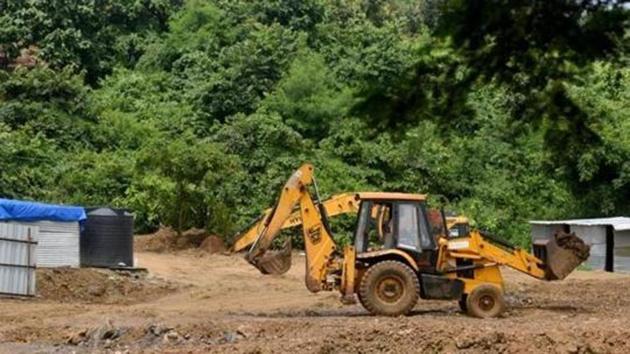Green norms for project expansion could be relaxed
It has also exempted projects with a proposed capacity expansion up to 40% from the requirement of public consultations, with certain riders.
In a move that could turn out to be a bonanza for the mining and infrastructure sectors, the environment ministry is considering a number of relaxations in the environment impact assessment (EIA) process that is carried out for development projects, including mining, before they are given the go-ahead.

In a draft of the Environment Impact Assessment Notification 2019, circulated for “internal discussion,” the expansion of development projects with a production capacity increase of up to 25% has been exempted from EIA. HT has seen a copy of the draft.
It has also exempted projects with a proposed capacity expansion up to 40% from the requirement of public consultations, with certain riders. If approved, the EIA Notification 2019 will replace the EIA Notification 2006 which made prior EIA, environmental clearance and public consultations mandatory even for expansion of projects.
All projects concerning national defence and security or involving other strategic considerations, as determined by the Centre, will also be exempted from public consultations, and so will all linear projects such as highways or expressways, pipelines and so on, in border states.
All projects concerning national defence and security or involving “other strategic considerations,” as determined by the Centre, will be assessed. However, no information relating to such projects or activities will be put in the public domain, the draft states.
The environment ministry, through various office memorandums, orders and notifications, has already introduced several relaxations in the EIA Notification 2006. The draft for internal discussion is an attempt to consolidate all those changes, officials said.
“The draft only puts together all the notifications and orders that have been issued related to the EIA process in previous years. We should get all the comments to the draft in another month after which it will be notified,” said CK Mishra, secretary, ministry of environment.
A range of exemptions for expansion projects completely does away with a public assessment of a project’s compliance before granting approvals for expansions, said Kanchi Kohli, legal expert with the Centre for Policy Research (CPR).
“Non-compliance of thermal power norms, waste management guidelines and pollution standards have been proven in government documents, people’s complaints and litigation. Yet, we continue with awarding privileges for expansion projects rather than opening them to third-party audits,” said Kohli
She added: “The ministry attempts to reconcile the various amendments and OMs clarifying clauses of the EIA notification. Several of these brought in substantial exemptions for projects from detailed scrutiny, appraisal and public consultations. The implications of each of these is far-reaching. For instance, the inclusion of standard terms of reference (TOR) as a clause in the notification cements the principle that each project does not require a site-specific and merit-based review before setting the terms of impact assessment.”
The draft of EIA notification 2019 is bordering on a repeal of environment regulations, said Sudiep Shrivastava, an environmental lawyer.
“The 1994 notification was diluted by 2006 notification and now 2019 one virtually ends any hope about having a clean environment in future,” he said.
As for why the new notification will be brought in, the draft states: “the Central Government (through EIA notification 2006) imposed certain restrictions and prohibitions on the undertaking of some projects or activities or expansion or modernization of such existing projects or activities entailing capacity addition…and whereas, there were several amendments issued to the said notification from time to time for streamlining the process, decentralization, implementation of the directions of court/tribunal.”
A zero draft of EIA notification 2019 was also published in April but it is not clear why it was withdrawn. The expansion of all projects up to 50% of the existing capacity in various sectors was also exempted from any kind of public consultations in the April draft.






